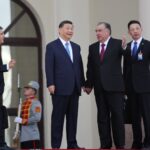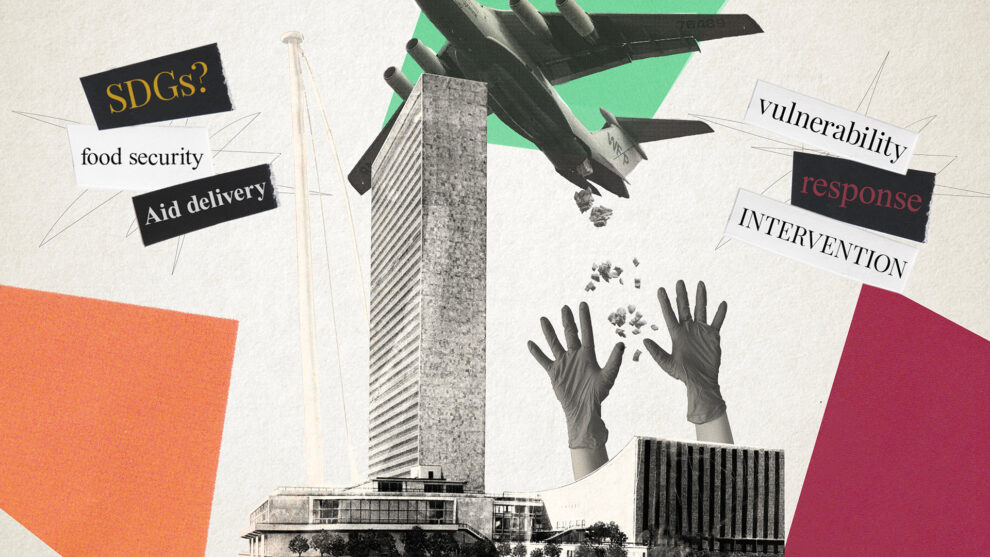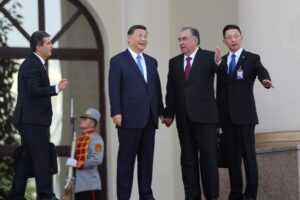A humanitarian ceasefire led to a slight reduction this week in fighting between Sudan’s rival generals, but battles still broke out and the civilian impact of the conflict worsened. There are no firm figures for how many people are on the move, but the bombardment of Khartoum and heavy clashes in other areas (notably Darfur) suggest it could be millions. So far, refugees have been documented crossing to Chad, Egypt, Ethiopia, Saudi Arabia, and South Sudan. And significant numbers of internally displaced people – many unable to afford pricey bus tickets to neighbouring countries – have been reported too. Inside Sudan, it is local communities and civil society groups that are organising humanitarian relief as aid agencies focus on evacuations and relocations. Discussions are now beginning on how to reboot international aid efforts, as we reported, but there are many obstacles along the way, from where to set up operations (Khartoum is a non-starter) to getting staff and supplies into the country.
Burkina Faso’s lengthening list of atrocities
During their seven-year battle against jihadist groups, Burkina Faso’s security forces have frequently been accused of human rights violations. Back in 2019, we reported on the detention and execution of men the army accused – on flimsy grounds – of being militants. But extrajudicial killings have increased significantly since army captain Ibrahim Traoré took power in a September 2022 coup. The latest allegations concern the northern village of Karma, where at least 150 civilians were killed on 20 April. Karma residents say armed men wearing military uniforms and driving armoured pick-ups killed women with babies on their backs and hunted down the wounded. The alleged atrocities comes a month after the French newspaper Libération published an investigation into the execution of children at a military camp in the north. Civil society activists are also facing restrictions under the junta, which has failed to alleviate a worsening humanitarian crisis that’s left tens of thousands close to famine.
Dialogue raises hopes for peace in Ethiopia’s Oromia
Preliminary peace talks between Ethiopia’s federal government and the rebel Oromo Liberation Army (OLA) have begun on Tanzania’s semi-autonomous island of Zanzibar. The confidence-building discussions, mediated by Kenya and Norway, are aimed at paving the way for future negotiations to end the five-year conflict. There have been few details on the dialogue so far, but the OLA said it welcomed a peaceful resolution to the violence in Oromia, which has included civilian massacres and indiscriminate government crackdowns. The OLA, labelled a terrorist organisation by Addis Ababa, says it’s fighting for greater autonomy for the Oromo people, Ethiopia’s biggest but historically marginalised ethnic group. Violence has surged in Oromia following a peace deal in November that ended the war in northern Tigray. The OLA is accused of targeting ethnic Amharas who live in Oromia, while militias from the Amhara region – which borders Oromia – have killed Oromo civilians. See The New Humanitarian’s report on the conflict.
Sex abuse victims take legal action against WHO personnel
Thirteen women are pursuing legal cases against World Health Organization personnel in the Democratic Republic of the Congo over sexual abuse and exploitation allegations during the 2018-2020 Ebola outbreak, Health Policy Watch reported. It’s unclear if the cases are criminal or civil, or if the accused still work for WHO. In September 2021, an independent commission found at least nine rape allegations linked to the scandal, which was first uncovered by The New Humanitarian. We returned to eastern Congo the following year and spoke to dozens more women alleging similar abuse, including 18 who said they were made pregnant by WHO workers. WHO says it has provided assistance to more than 100 victims, including legal advice, but dozens of women told The New Humanitarian the support was too little too late. While WHO said this week that investigations into the Ebola outbreak allegations are still ongoing, it confirmed that eight of its workers have been dismissed for separate sexual misconduct allegations in the past seven months. In an interview with The New Humanitarian earlier this month, Christian Saunders, the UN’s special adviser in tackling sexual abuse and exploitation, claimed some progress while acknowledging that SEA investigations should be done faster – and ideally not by the UN itself.
As gangs seek control of new neighbourhoods, Haitian citizens fight back
Gangs are increasingly moving into new parts of the Haitian capital, Port-au-Prince, that had been considered relatively safe, but they’re not having it all their own way. On 24 April, when police stopped a minibus in Canapé-Vert containing 14 suspected gang members and arrested them, residents stormed the precinct, stoned the suspects, and burnt them to death. The men were reportedly gang reinforcements for ongoing attacks in the nearby areas of Debussy and Turgeau. André Paultre, a freelance contributor for The New Humanitarian in Haiti, confirmed fighting had reached those neighbourhoods, among others, and that citizens were resisting: blocking streets with trucks and trailers. Paultre estimated that 50 gang members had been killed by 26 April in clashes with civilians armed with sticks, machetes, and guns. “All Debussy is standing… [or] hiding under their bed,” one man told him. “The few friends I contacted have no precise information, only the sad impression that the area has been hijacked by armed groups.”
Preparing for El Niño’s humanitarian risks
El Niño conditions could return by June, fuelling extreme weather and food insecurity risks around the globe, the UN’s Food and Agricultural Organization warned in a new forecast. The effects of El Niño vary: It brings wetter conditions to some areas, and drier conditions elsewhere. This could mean some respite for drought-hit areas in the Horn of Africa, where consecutive failed rainy seasons have pushed some communities to the edge of famine. But it “may spell trouble” elsewhere, said the FAO, which warns that aid groups need to take steps now to prepare for the risks.
Source : The NEW Humanitarian











